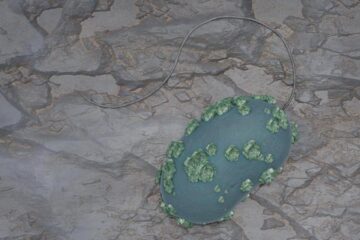Researchers discover underlying mechanisms of skin hardening syndromes

The team connected pharmacological properties of the Novartis Pharma AG drug called balicatib to the skin disorder for the first time after investigating adverse reactions suffered by patients participating in a clinical trial for the treatment of osteoporosis. These findings appear online in the Journal of the American Academy of Dermatology.
Balicatib was developed recently as an osteoporosis drug that can inhibit CathepsinK (catK), an enzyme involved with bone degradation. In a recent trial however, several patients on balicatib experienced hardening of the skin, most frequently around the neck, chest and abdomen. After examining the cases and relating them to recent reports of cathepsin K expression in the skin and the role of cathepsin K in degrading collagen and elastin, the investigators determined that the changes were a direct effect of the drug.
This case study adds a new class of medication to the short list of agents that induce skin hardening syndromes. It also proves that catK affects the skin as well as bones, and marks the first time that skin hardening can be convincingly linked to the pharmacologic properties of a drug.
“This observation emphasizes the importance of intracellular collagen degradation in the skin, a pathway so far vastly underappreciated,” said Thomas Ruenger, MD, PhD, a professor and vice-chair of dermatology at BUSM. “This observation also sheds new light on our understanding of the mechanisms involved in morphea, or skin hardening. Failed collagen degradation has so far not been thought to cause morphea.”
The researchers believe these findings have far-reaching implications for osteoporosis patients and those suffering from skin hardening syndromes.
DISCLAIMER: Dr. Ruenger served on the independent data safety monitoring board that monitored the clinical trial in which the described observations were made.
Media Contact
More Information:
http://www.bmc.orgAll latest news from the category: Health and Medicine
This subject area encompasses research and studies in the field of human medicine.
Among the wide-ranging list of topics covered here are anesthesiology, anatomy, surgery, human genetics, hygiene and environmental medicine, internal medicine, neurology, pharmacology, physiology, urology and dental medicine.
Newest articles

Uranium-immobilizing bacteria in clay rock
Microbial reduction reduces mobility of uranium compounds. When designing repositories for high-level radioactive waste in deep geological layers, various factors must be carefully considered to ensure their long-term safety. Among…

6G mobile communications tested in the Alps
Researchers at the University of Stuttgart achieve strongest connection. Making emergency calls even in remote areas and transmitting large amounts of data in real time? This is possible with the…

Optimising inventory management
Crateflow enables accurate AI-based demand forecasts. A key challenge for companies is to control overstock and understock while developing a supply chain that is resilient to disruptions. To address this,…





















